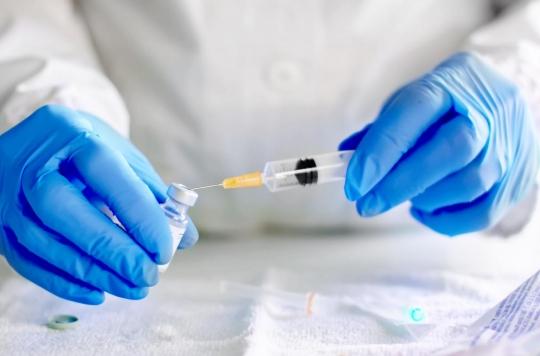The Institut Montaigne publishes guidelines to try to restore the confidence of the French in the vaccine against Covid-19.

- Nearly 50% of French people say they do not want to be vaccinated against Covid-19.
- The Institut Montaigne publishes guidelines to try to restore confidence.
While nearly 50% of French people still say they do not want to be vaccinated against Covid-19, theMontaigne Institute publishes guidelines to try to restore confidence. “Research and the marketing of a traditional vaccine take about ten years to see the light of day. The one against SARS-CoV-2 took about ten months: it is the result of a historic mobilization of pharmaceutical companies, governments and health authorities, faced with a disease that affects the entire planet. , specifies the Institute in the preamble. “Now, to make the vaccine campaign a success, all the players and citizens must be able to feel listened to and involved in an undertaking that requires the mobilization of everyone”, estimate the co-authors of this note, Nicolas Bauquet, deputy director for research and public transformation at the Institut Montaigne, and Laure Millet, head of the Health program at the Institut Montaigne.
Developing a transparent and equitable vaccine strategy
Complete transparency in the dissemination of information around vaccination requires greater inclusion of citizens in crisis management. At this stage, the government has not commented on the training of healthcare personnel authorized to vaccinate, the mobilization of associations, firefighters, etc. to reach as many people as possible through first information about the vaccine and then vaccination.
Learn from strategies that have proven effective abroad
International examples, studied in detail in this note, seem particularly relevant to act quickly but also to raise the challenge of public confidence in the vaccine, for example:
– In Canada, an interim order to expedite the approval process for COVID-19 vaccines has been put in place;
– In the United Kingdom, the general practitioner is the cornerstone of the English health system, and his position is at the heart of the vaccination strategy;
– In Germany, particular attention is paid to ethics, pharmacovigilance and information to citizens. At federal level, a “communication management committee” is already in place to coordinate and harmonize all measures, including public relations work. In addition, a strict division of roles between the Länder and the central government makes it possible to manage, as close as possible to the field, the number of centers to be deployed according to the number of people to be vaccinated initially.
Prioritize a collective organization
The vaccination campaigns that will be launched in 2021 will represent a huge challenge in logistical and organizational terms. A collective vaccination strategy must go through a horizontal organization, unifying the State, local authorities and health professionals but also the private sector and civil society, to initiate an iterative work of information exchange and co-decision, adapt the device and weld a community of action. The cooperation of all these actors is necessary for their success. The national coordination of these actors within and outside the public sphere must pass through a clearly defined steering centre, based on a real inter-ministerial structure, as well as on territorial cells in each department, organized around the prefect and the territorial delegation of the ARS, capable of mobilizing all State services, as well as the departmental intervention and rescue services (firefighters), in close collaboration with local authorities, associations, and health professionals.
Assessing vaccination through data
The analysis of long-term vaccination data is a necessary element for the proper monitoring of the epidemic, making it possible to provide useful information for the planning, implementation, evaluation and modification of vaccination programs. It is also essential to ensure confidence in the vaccination policy. The speed of development of the first distributed vaccines generates strong concerns within the population, which require close monitoring of vaccinovigilance in order to limit the risks as far as possible with regard to the use of vaccines. The reporting system put in place must be based on the participation of health professionals, which must be maximized in order to best counter potential adverse effects.
Establish effective communication
The success of the vaccination campaign relies heavily on the effectiveness of communication with the general public, health professionals and associations working with disadvantaged populations. The communication campaign around vaccination must be anticipated, at each of its stages. Its strategic management must be constantly articulated with the global vaccination strategy, respecting four principles: a principle of coordination, a principle of anticipation, a principle of inclusion and a principle of evaluation. The choice of issuers for this communication campaign is decisive. To encourage the support of the population and support for the government, those in charge of vaccination strategy must be the result of a balance between politicians and scientists, and must rely on local relays: health professionals, local elected officials, associative figures.

















